The content of the article
The mucous membrane of the nose in children is much softer and thinner than in adults. Small capillaries located in the Kisselbach zone sometimes do not cope with the load. Weak walls burst and bleeding occurs. In 90% of cases, it can be stopped at home. Single bleeding from the nose should not cause panic or suspicion. But if they are repeated too often, you must contact your pediatrician and find out the reason.
Main factors
Parents of young children are advised to follow the behavior of the young patient. Perhaps the child likes to stick foreign objects into the nose: pencils, pens, small toys or his own fingers. Acute and hard accessories damage the thin mucous membrane and the anterior section of the nose, in which most of the capillaries are located.
Bleeding in infants occurs due to too dry air.If parents constantly include additional sources of heat and do not put humidifiers or water bowls next to the infant’s crib, the nasal mucosa loses moisture. Capillaries become brittle. When a child cries, coughs or sneezes, the thinned walls burst.
In children from 2 to 10 years old, nosebleeds can cause excessive physical or mental stress. For example, when parents are forced to go to sports clubs, attend tutors and bring only fives from school. The child, due to constant stressful situations, has problems with pressure. It rises or falls sharply, so the capillaries of the nose do not stand up, and bleeding occurs.
In adolescents, similar symptoms are observed due to hormonal adjustment. Often, bleeding is accompanied by dizziness, tinnitus and rapid heartbeat. Some patients have migraines. Girls suffer more from nosebleeds. The boys body develops more slowly, so their body manages to adapt to hormonal changes.
If the nasal discharge is intense and abundant, lasting more than 15 minutes, accompanied by loss of consciousness or vomiting, parents should sound the alarm.Suspicious symptoms may indicate serious pathologies:
- staphylococcal rhinitis;
- curvature of the nasal septum;
- brain injury and concussion;
- cysts or polyps;
- genetic abnormalities of blood vessels;
- malignant tumors in the nasal cavity or brain;
- diabetes;
- poor blood clotting;
- hepatitis and other liver diseases;
- inflammatory processes in the mucous membrane;
- hemorrhagic disease;
- hemophilia.
The most innocuous factor that causes nasal bleeding is a lack of ascorbic acid, calcium or vitamin K. But you can only find out about the real causes after consulting a doctor and a thorough examination. While the child is not diagnosed correctly, parents are advised not to self-medicate, because the wrong medicines and folk remedies will only worsen the health of the young patient.
First aid
At the sight of blood can not panic. The child, noticing the excitement of mom and dad, also begins to be afraid. Fear increases palpitations and nosebleeds. If the baby has burst the vessel, you need to calm it down and say that nothing dangerous has happened.He now lie down a bit, and all must pass.
The child is placed on his back, placing several pillows or a plaid roller under the back of his head. The chin should touch the chest. It is forbidden to tilt the head, otherwise the blood will fall into the larynx and esophagus, and then you will have to fight against suffocation or vomiting.
Parents should ask the child not to blow his nose. The bleeding remains in the nose and form a clot that closes the damaged walls of the capillaries. Apply a piece of meat from the freezer or ice to the nose. Compress wrapped with cling film and a thin towel, so as not to frost the skin of the baby. Cold lotion narrows blood vessels and capillaries, reducing the amount of discharge.
If blood enters the oral cavity, it can not be swallowed. The child is given a bowl or cup in which he spits out saliva. And also a napkin to wipe your face. The wings of the nose for several minutes pressed his index fingers to the septum. You need to breathe through your mouth.
If the manipulations do not help, prepare turunda of sterile cotton and bandage. The blanks are impregnated with 3% peroxide and inserted into the nasal passages. Leave on for 6–12 minutes.If the intensity of discharge does not decrease, call an ambulance.
Consultation with a doctor is needed if a young patient:
- injured head or nose;
- took aspirin 20-30 minutes before the bleeding or such antipyretic drugs like Ibuprofen or Nurofen;
- has diabetes or hemophilia;
- complains of nausea or dizziness;
- fainted.
Foaming blood indicates lung damage. A vomiting with red streaks and clots warns of problems with the stomach. In such cases, only hospitalization will save the child, so you need not to wait 15 minutes, but immediately call an ambulance.
Order and climate
Malignant tumors, cysts and polyps require surgical or medical treatment. If a child simply has weak blood vessels, pressure drops due to exhaustion of the body or lack of trace elements, and the doctor did not prescribe strengthening tablets, you can use traditional methods.
First, parents reduce the load. They make sure that the young patient rests more often and does not sit at the computer and textbooks around the clock. The child is taught to do exercises every morning, take a douche and sleep for 8–9 hours at least.
So that the nasal mucosa does not dry up, a humidifier is installed in the room. Monitor the temperature in the room so that it does not rise above 25 degrees. And also regularly open windows to increase the concentration of oxygen. In winter, you can get by with the window, so that the child does not freeze, because the capillaries in the Kisselbach zone are weakened due to colds, viral diseases, heat and abuse of vasoconstrictor drops.
If brittle vessels are recommended to take "Askorutin." The tablets contain ascorbic acid and vitamin P. The drug is prescribed for children from 3 years. The exact dosage is determined by the otolaryngologist or pediatrician.
Also, when vessels are fragile, it is recommended to regularly flush the nasal passages with salted water or special saline. Clean mucous moisturize natural oils: sea buckthorn, olive or sunflower. They not only prevent drying, but also have regenerating properties.
If the child is prone to allergic rhinitis, the room is cleaned four times a week. They not only wipe dust, but also clean the floors, as well as wash soft toys. Carpets with a long nap are contraindicated.It is better to cover the floor with a coating in which dust does not accumulate.
Diet bleeding
In the fall and spring, it is useful for children to take vitamin complexes that contain ascorbic acid, calcium and iron. During the rest of the year, parents should monitor the diet of the young patient. For the prevention of nosebleeds in the diet is administered:
- spinach;
- broccoli;
- color and Brussels sprouts;
- papaya and kiwi;
- citrus and strawberries;
- beets and pomegranates;
- Brown rice;
- bran bread;
- pork or beef liver;
- raisins and prunes;
- chicken or quail eggs, especially yolks;
- oysters and mussels;
- green onions and cabbage;
- rapeseed oil;
- soy.
Porridges, fresh fruits, berries and vegetables, as well as dairy products: cottage cheese, kefir, ryazhenka and yogurt are useful. With this diet, the child’s body receives both iron and vitamins C, K and E. The elements tone and strengthen the walls of blood vessels, as well as normalize blood circulation and pressure. A positive effect on hormones.
ethnoscience
If the pediatrician does not mind, for the prevention of nasal bleeding, you can use home infusions and decoctions. The fragility of capillaries is cleaned with fresh aloe.It will take a three-year plant, which cut the largest and fleshy leaf. Store healing preparation in the refrigerator. Every day before breakfast, the child is given a small piece of aloe the size of a teaspoon. The plant can be ground and mixed with honey to remove the bitter taste.
In the nasal passages is useful to introduce fresh juice of yarrow. 1-2 drops in the morning or evening. The preparation strengthens and disinfects the mucous membrane, protecting it from infectious diseases. Instead of the juice, green leaves of yarrow are also introduced. Only they are washed under a tap and kneaded with fingers to make a juice, and hold no longer than 20 minutes. The second method is not suitable for children under 6 years old.
Help with nasal bleeding herbal. Children will approach:
- plantain leaves;
- stinging nettle;
- horsetail;
- shepherd's purse;
- calamus roots;
- yarrow.
Each plant is discussed with the pediatrician, because what suits one child is dangerous for the second. Natural billet combine in equal proportions and grind, to get a homogeneous brew. On a cup of boiling water take 15-20 g of herbs. It is better to push the firming drink in a water bath, but you can simply wrap the container with a towel or pour the ingredients into a thermos.
Broths usually have a bitter taste, so some honey is added to the medicine. The sweet component improves the taste and supports the immune system of the baby.
Helps with frequent bleeding viburnum bark. In a saucepan with a thick bottom pour 60 g of dry billet and add a cup of distilled water. The composition should simmer for 30–40 minutes, until about half of the liquid has evaporated. Kalinovaya tea is removed from the plate and after straining is diluted with clean water. Take 100–120 ml. Broth give the child three times a day. 35-40 ml before the main meal. I also infuse turunds with Kalin tea and insert them into the nasal passages during bleeding.
If the mucous constantly dries out, it is lubricated with a mixture of decoction of nettle and vaseline. The components are stirred until uniform, soaked with cotton swabs and applied to the inside of the nose after washing.
Strengthens fragile capillaries and ointment on the basis of interior fat. In addition to the main component, you will need:
- viburnum leaves;
- Pepper Highlander;
- nettle;
- yarrow;
- shepherd's bag.
30 g of each herb for 50-60 g of fat. Melt and simmer for 40 minutes in a water bath so that the base is saturated with essential components.Be sure to strain so that the particles of leaves and stems do not fall on the mucous membrane and do not injure it. Rub after washing the nasal passages with water with apple cider vinegar or lemon juice.
Brittle capillaries and vessels can be strengthened with vegetables and fruits, herbal decoctions and ointments. The main thing is to make sure that nosebleeds are caused by a lack of vitamins or stressful situations. And the child does not have malignant tumors, genetic abnormalities, diseases of the cardiovascular system or the brain.
Video: nosebleeds in children

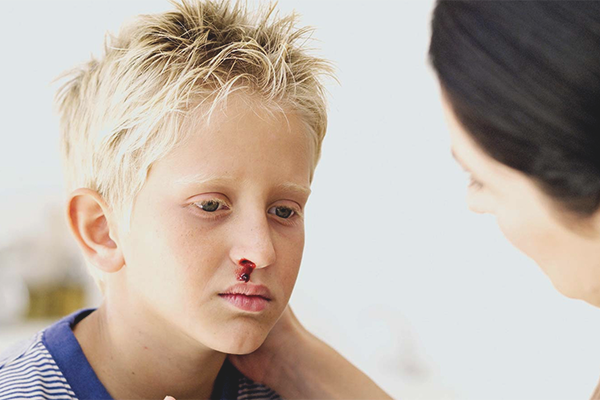
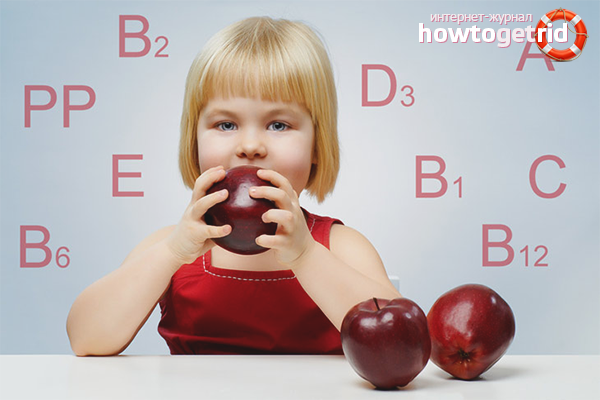


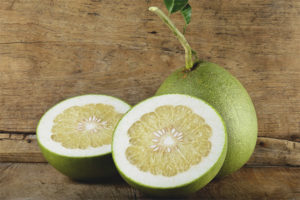
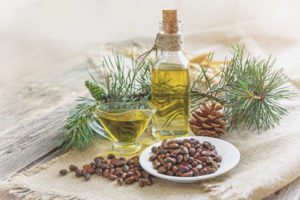
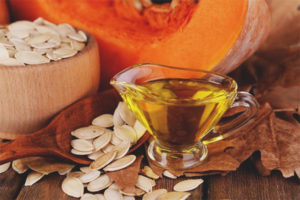
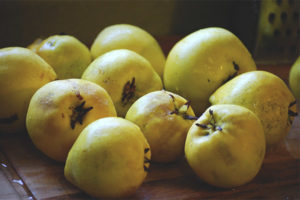

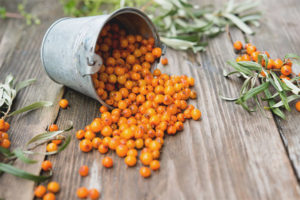

To send